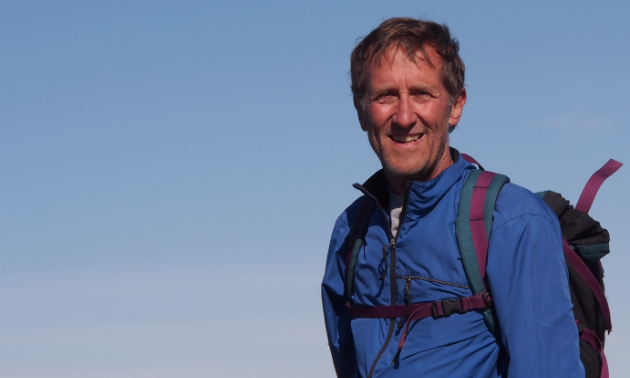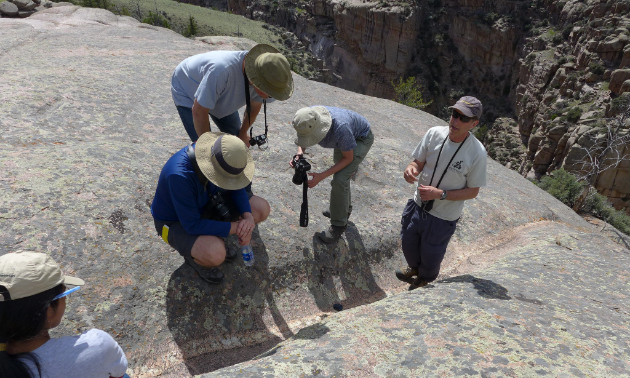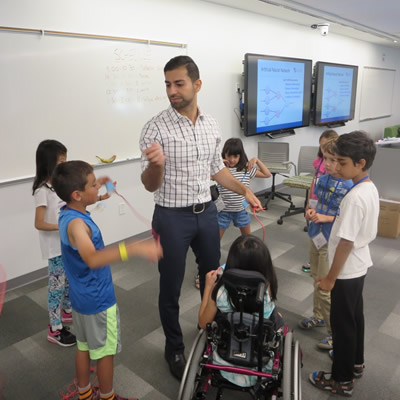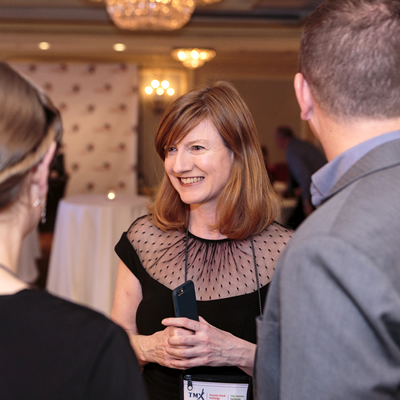Rock Star: John Francis Hugh Thompson
John F. H. Thompson works hard to bridge the gap between academia and industry and share his passion for the stories rocks tell

Arctic field work north of 60. — AJB Thompson photo
Though the geological lifestyle is promising, it isn't just the sparkling road to prosperity that keeps John Thompson in his diverse mining career. “Among other things, I still have a passion for rocks,” he said, “and the stories rocks tell.”
John Thompson originally hails from the U.K. where he lived and studied in many places from the northwest to the southeast, including Oxford University, before coming to Canada in 1976.
He completed graduate studies in Toronto before making the rounds between Toronto, Australia, England, the U.S. and Vancouver for the next several years. He has held positions with major mining companies including Teck and Rio Tinto and has directed the Mineral Deposits Research Unit at UBC. He currently divides his time between teaching and research at Cornell University in upstate New York and consulting out of Vancouver; he also serves as vice-chair for Genome British Columbia.
Thompson became interested in the mining industry when he graduated in the U.K. and faced limited opportunities for geology students. “Many of my fellow graduates were not staying in geology and some were going into oil, which meant being on an offshore oil rig in the North Sea,” he said. “I was more interested in geology on the ground and understanding the geology of different places.”
The mineral industry was a much better fit as it offered travel, diversity and more hands-on work. “I'd heard about the industry while doing an undergrad mapping project in northwest Italy where Cominco, a Canadian company, had been active,” said Thompson. “I thought, if they are there, exploration work must be really good!”
He followed opportunities to visit interesting places and work in various geographies, looking at different types of deposits and, most importantly, getting to know the human side of mining.
“I have a strong belief in the industry and its importance for people globally for creating better societies and helping people who are impoverished,” he said. “We have to deliver the materials for that in a sound, effective, clean manner, and my belief in the importance of that keeps me involved.”
Over the course of his career, Thompson has been involved in several discoveries, and from a mineral exploration point of view, there is nothing better. ”There is nothing like seeing someone's ideas come to reality” he said.
Another passion of his is working with people–students and professionals in industry and academia–and he finds it incredibly rewarding to witness another's resulting success. Thompson was the 2015 recipient of the Canadian Federation of Earth Sciences mentorship medal, which he earned on the strengths of recommendations from people he'd mentored.
“I've been fortunate in winning a number of awards, but this was the most meaningful because the people I'd mentored put me up for it,” he said. “It comes with extra feelings.”

John Thompson's diverse mining career has included teaching in the field in Wyoming. — Chris Siron photo
Like many others with a long-standing industry presence, Thompson said the greatest challenge for the industry is trying to explain to people what the mining industry actually does, what it can do for a variety of people and its overall, world-wide importance.
“People know very little and what they do know is negative,” he said. “It is difficult to introduce them to the reality of natural resource use in everyday life and the need for the industry to deliver these resources.
“This is a vital part of modern society, and while it is not easy, I generally learn more from people who disagree with me as I try to at least influence them to think again with an open mind.”
The industry has grown and changed over the years and now produces vast amounts of data in real time, which helps the industry innovate but requires effective use of all the data to maximize performance and improve safety.
Connectivity has also revolutionized mining and exploration, moving from radios and weekly supply drops to constant communication and real–time data in the field.
Moving forward, community engagement will shape the face of the industry. “How we approach communities and whether we listen will determine whether an operation is successful, and if we get it wrong, it is hard to correct,” said Thompson. “We have to educate ourselves, employees and communities and really listen without just telling people what we think they should hear—that isn't easy.”
One of Thompson's most important accomplishments has been successfully bridging the gap between industry and academia on several levels. At UBC, at Cornell and as a consultant, he has managed to act as a go-between and help academia understand the true inner workings of mining projects and the need for both sides to understand one another.
The same goes for engaging people across disciplines. Thompson has worked with people with expertise in exploration, engineering, mineral processing, social science and other disciplines, helping them learn each other's roles and how they can interact in a collective effort to get things done.
Moving forward, he sees rapid change and new technology playing major roles in continued mining and exploration successes. Minor metals, used in technology where things can change fast, will be a market to keep an eye on, but major commodities will still be eye-worthy and will likely see price volatility in our changing world.
In digital technology, there exists the potential to be awash in data, and the challenge will be to use all this data to enhance the performance and productivity of mining operations. MineSense, for instance, a Vancouver-based company where Thompson is a director, has developed a sensor-based ore-sorting technology that can help operations improve productivity and performance.
In terms of exploration, there will be an important emphasis moving forward on new discoveries around existing mines as well as discoveries in brand new sites. “Companies that combine new technologies with traditional skills on the ground will make exciting discoveries,” he said.
For his own future, Thompson isn't quite sure where the path will take him, but his hope is to continue to do something wonderful and interesting. Given his story so far, this is undoubtedly the most likely scenario.




